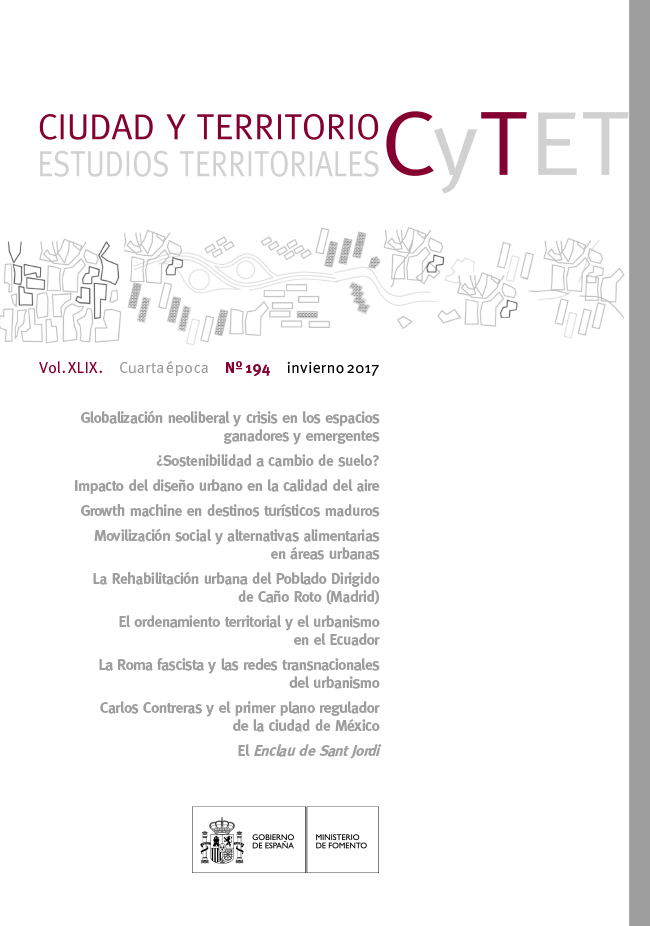Neo-liberal globalisation and crisis in winning and emerging spaces
Keywords:
Neo-liberal globalisation, crisis, winning and emerging spacesAbstract
The profound transformations experienced by economic, social and labour structures observed since the end of the 20th century have speeded up and become more profound over the last decade when a crisis of exceptional importance was generated. Although this crisis started as a financial one, it has developed until becoming systemic. Closely connected with these processes, associated territorial changes also occurred, on the one hand, to the innovations linked to information technologies that have allowed the exponential growth of flows and the resulting densification of the network area; on the other, to the serious alterations and impacts arising from the crisis. In this general reference context it is interesting to pay attention to those more dynamic and innovative areas which, being more directly associated with the dominant economic and spatial logics, have come to be considered as winning or emerging. In that regard, this article tries to resume the reflection made on these types of areas almost two decades ago by looking at them anew in order to try to recognise the changes they have undergone during a particularly convulsive and complex period. Apart from the consolidation of the neo-liberal ideology which has proven so decisive in the make-up of the crisis, social and territorial inequalities have also deepened during this period.
Downloads
Downloads
Published
How to Cite
Issue
Section
License
Copyright (c) 2017 Inmaculada Caravaca Barroso

This work is licensed under a Creative Commons Attribution-NonCommercial-NoDerivatives 4.0 International License.
Considering the provisions of the current legislation on Intellectual Property, and in accordance with them, all authors publishing in CyTET give -in a non-exclusive way and without time limit- to the Ministry of Transport, Mobility and Urban Agenda the rights to disseminate, reproduce, communicate and distribute in any current or future format, on paper or electronic, the original or derived version of their work under a Creative Commons Attribution-NonCommercial-NoDerivative 4.0 license International (CC BY-NC-ND 4.0), as well as to include or assign to third parties the inclusion of its content in national and international indexes, repositories and databases, with reference and recognition in any case of its authorship.
In addition, when sending the work, the author(s) declares that it is an original work in which the sources that have been used are recognized, committing to respect the scientific evidence, to no longer modify the original data and to verify or refute its hypothesis. Author(s) also declare that the essential content of the work has not been previously published nor will it be published in any other publication while it is under evaluation by CyTET; and that it has not been simultaneously sent to another journal.
Authors must sign a Transfer of Rights Form, which will be sent to them from the CyTET Secretariat once the article is accepted for publication.
With the aim of promoting the dissemination of knowledge, CyTET joins the Open Journal Access (OA) movement and delivers all of its content to various national and international indexes, repositories and databases under this protocol; therefore, the submission of a work to be published in the journal presupposes the explicit acceptance by the author of this distribution method.
Authors are encouraged to reproduce and host their work published in CyTET in institutional repositories, web pages, etc. with the intention of contributing to the improvement of the transfer of knowledge and the citation of said works.








 Enlace a CyTET en Linkedin
Enlace a CyTET en Linkedin